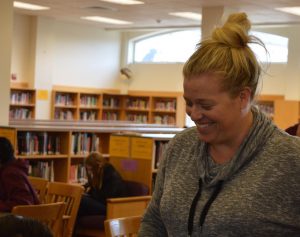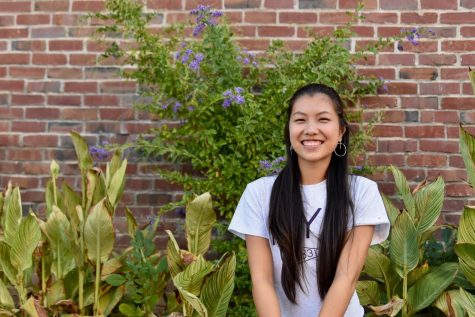The diverging of paths: individuals discuss life without children
Students and teachers explain why they prefer not to have children
November 15, 2017
Sophomore Alison Chang does not want to be a mother.
There’s something appalling about having children to her. She can’t picture herself on the hospital bed, tired and sweaty, her bones shifting apart slowly, her organs forced to squish together in order to create space for a baby. Ever since sixth grade, she’s been unable to see the beauty behind birth.
From the parent-teacher conferences to the financial burden, she can think of hundreds of reasons why she doesn’t want a child. She believes the responsibility would stifle her and limit her freedom.

Although History teacher Bonnie Belshe loves kids, she’s made conscious decisions such as pursuing education or traveling opportunities that led to other pathways.
“I love my students, I love coming in and teaching and I love getting to spend time with my niece and nephew,” Belshe said. “I can just totally spoil them rotten, and that is my number one job and goal as an aunt. But I just don’t want kids on my own. For me, that’s enough.”
During her late 20s to 30s Belshe noticed the default assumption that women must become mothers when family members asked “When are you going to have kids?” Never did they ask if she wanted them in the first place. However, once her brother became a father, such questions decreased as their wish for grandchildren was fulfilled.
Sometimes, because we’ve had so much of this maternal message pushed on for women, that it can be seen as a judgment for women when they’re deciding not to have kids.
Chang’s own parents have the same desire as Belshe’s: grandchildren to carry on the family legacy. And while her parents are generally supportive of her decision, Chang’s mother thinks she’s too young and will change her mind in the future.
For Science teacher Lora Lerner, disappointing her parents was one of the most difficult parts of not having kids.
“I think the thing that’s a little sad for me is not being able to have grandchildren for my parents,” Lerner said. “That’s a little hard. That’s something where I think ‘that’s not my choice’ but my choice affected them. So I think that can be a difficult thing where you feel pressure from your parents to provide grandchildren.”

Lerner never opposed the idea of having her own child; however, the right time or circumstance did not surface and she made decisions that strayed away from that path in life. As time went on, there came a point where she knew it simply wasn’t going to happen.
“When I was little, I thought I would get married and live in a house with a white picket fence and have two and-a-half children,” Lerner said. “Certainly when I got older I realized there’s a lot of problems with those expectations — they won’t fit everybody. There’s no reason that we can’t choose our own path and that should be just as successful. But we do live in a world where there’s bias towards certain paths.”
This bias is one Belshe was very familiar with. Although she does not receive much pressure from her peers, many of her friends who do not have children are judged by others in society. Because of this, she is a strong advocate for women’s choices and encourages women to follow their own desires.
“For women, reproductive decisions have the greatest impact on their educational and their financial opportunities,” Belshe said. “Because we’ve had so much of this maternal message pushed on for women, it can be seen as a judgment for women when they’re deciding not to have kids.”
Through it all, Lerner emphasizes that each individual has a different upbringing and makes a variety of decisions, but they are all equally important. She is content with her own life, finding meaning in teaching and encourages others to follow their own paths.
“To me, my life perspective is that we’re never going to have it all,” Lerner said. “We go to this college, we’re not going to go to that college. We’re in this relationship, we’re not going to be in that relations. I’m not going to spend my entire life wishing I had gone down some other path. That’s just not the way I want to live. I’m going to spend my life making the best path I can, and appreciating it.”



























